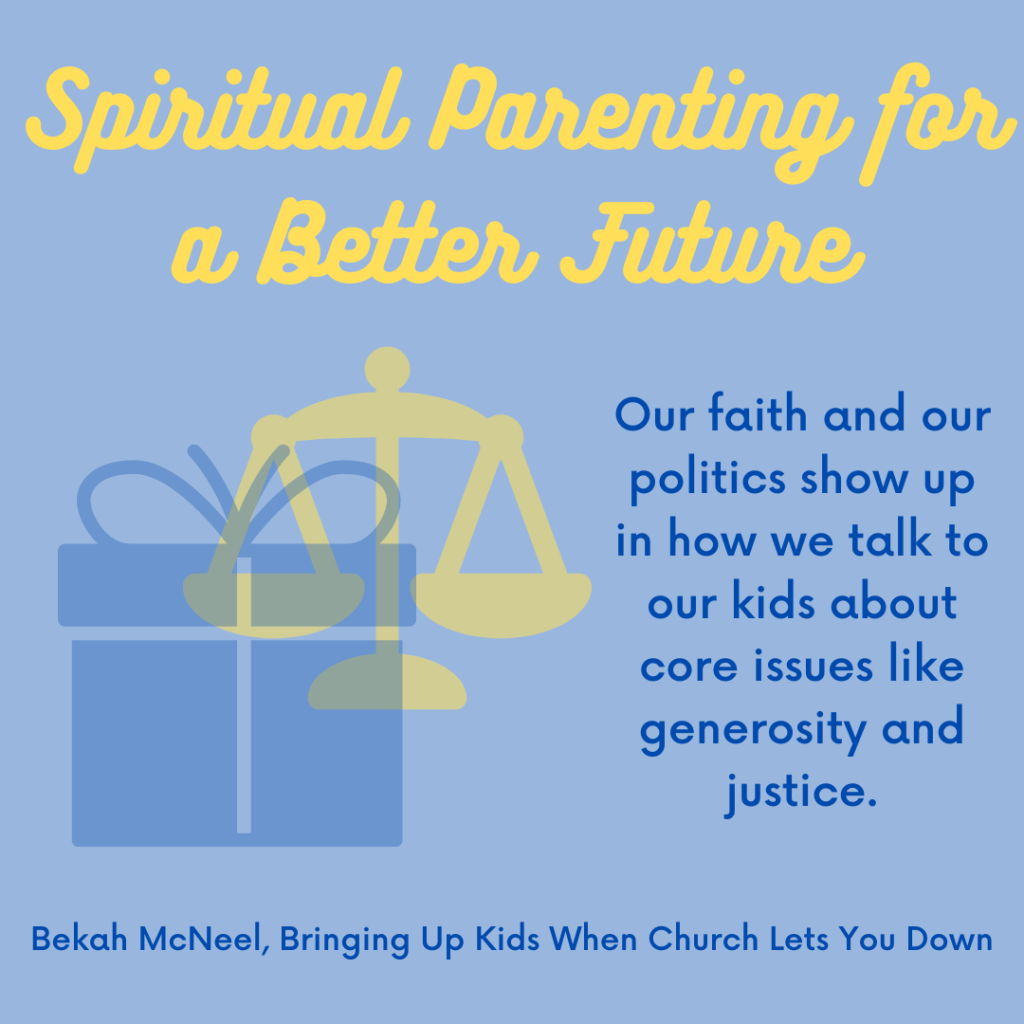Talking Politics at the Dinner Table

During the 2020 campaign season, Moira joined me on a few late afternoon walks, exercising the dog, or dropping something at her grandmother’s nearby. Yards were littered with signs, of course, and Moira was aghast to see Trump signs along the way. We’d made no secret about our disdain for the incumbent, and she’d gathered we were voting for “Biden Harris,” whom she had also heard was a woman. (It took months to get that straightened out.)
We talked about other down ballot candidates as well as we passed their signs, and she asked why I liked or didn’t like them. In a way, it felt a little weird talking about this stuff with someone who isn’t of the age we’ve deemed capable of making up her own mind responsibly enough to vote. Like I was corrupting her decision making.
But at the same time, isn’t that my job? To share with her how I make decisions, the things I take into consideration, the values I bring to bear on my responsibilities as a citizen. I’m not telling her she’s a Democrat or a Republican. I’m not even telling her that I am one of those things, or that our family is. But I am talking with her about what candidates are building. Some want to build systems to do the most good for the most powerful. Some want to build systems to do the most good for those who need it most…or at least just the most people. Some want to limit who can be included in our country, others want to include more people.
While “getting political” —whether with our kids or just in general—is distasteful to some, I find it necessary. I’m willing to be divisive over human rights, safety of refugees, dignity of our neighbors, and the possibility of a full and secure life in the United States. The people who make decisions in our country have a huge say in how money flows, how healthcare is allocated, and how our borders operate. I have to care, and teach my kids to care, in the same way I would care if someone walked up to my neighbor and punched them in the face, or stole their purse. My hope isn’t in a party or a nation, but neither am I going to ignore the effect parties and nations have on people.
I’ll be honest, I would probably talk to my kids about politics no matter what. My family of origin is political, my job is often political, I enjoy it as a topic. But I don’t want it to feel like a hobby or an “out there” topic full of jargon and trivia. I want them to look at politics the way they look at all power, and make it answer for its actions.